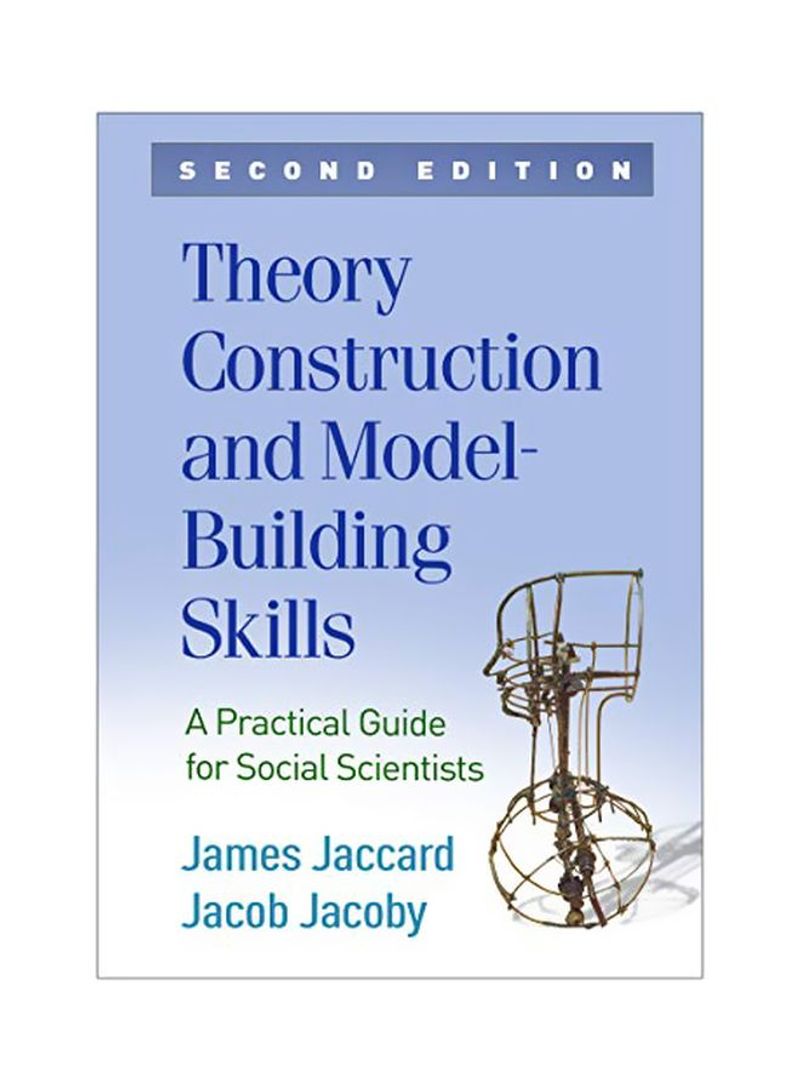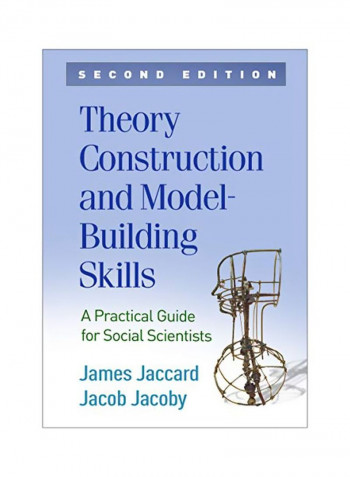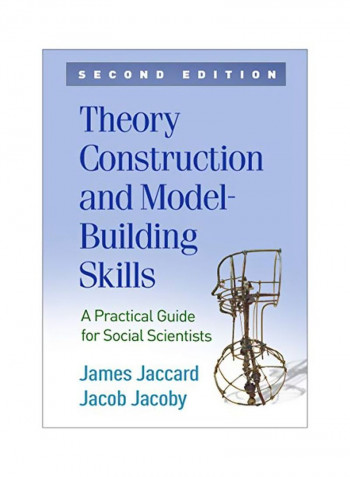Theory Construction And Model-building Skills : A Practical Guide For Social Scientists Paperback English by James Jaccard - 05 Mar 2020
Recommend
Sort by
Rating
Date
Specifications
Author 1
James Jaccard
Book Description
This accessible, hands-on text has now been revised and updated, with expanded coverage of topics including how theory may emerge from exploratory data analysis. The book prepares graduate students, new researchers, and even seasoned investigators to develop their own theories and build on existing ones. Concrete strategies are provided to help readers generate ideas, define constructs, and think through relationships and processes that link constructs. Compelling examples from multiple disciplines illustrate the use of quantitative, qualitative, and mixed methods orientations to theory construction. The text also offers practical advice for writing effectively about theories in papers and grant applications. Readers learn by doing via application and concept exercises, demonstration boxes, and practical guidelines. The extensive companion website includes PowerPoint slides of all of the book's figures, primers on advanced topics, video demonstrations, supplemental exercises, and other resources. New to This Edition *Emergent theory is now covered in mixed methods as well as qualitative approaches, plus in a new chapter on exploratory quantitative methods that can help generate new theory through data mining. *Chapter on whether and how to revise a theory when faced with disconfirmatory data. *Two chapters on the theoretical underpinnings of measurement practices. *New or expanded discussions of what constitutes a theoretical contribution, conceptual logic models, thought experiments, and more. Pedagogical Features *Application and concept exercises in every chapter. *Lists of key terms and engaging topical boxes. *Annotated suggestions for further reading. *New companion website with rich resources for students and instructors. *Chapters stand on their own and can be used in any order.
ISBN-13
9781462542437
Language
English
Publisher
Guilford Publications
Publication Date
05 Mar 2020
Number of Pages
522
About the Author
James Jaccard, PhD, is Professor of Social Work at the Silver School of Social Work at New York University. Previously, he was Distinguished Professor of Psychology for 20 years at the University at Albany, State University of New York, and Professor of Psychology at Florida International University for 8 years. Dr. Jaccard has authored or edited numerous books and has published over 200 articles in peer-reviewed journals. He has served on numerous boards and panels for the Health and Medicine Division of the National Academies of Sciences, Engineering, and Medicine and for the National Institutes of Health. His research focuses broadly on attitudes, cognitions, and emotions as they affect decision making, especially in applied settings. This includes research on adolescent decision making, health-related decisions, and a critical analysis of the effects of unconscious influences on adult decision making. Jacob Jacoby, PhD, until his death in 2018, was Merchants Council Professor of Consumer Behavior at New York University's Stern School of Business. He authored or edited several books and published over 160 articles in peer-reviewed social science and law journals. Dr. Jacoby was a Fellow of the American Psychological Association and a Fellow and past president of the Association for Consumer Research. His research on the factors that affect consumer decision making and behavior was honored by awards from the American Psychological Association, the American Marketing Association, the American Academy of Advertising, the Association for Consumer Research, and the Society for Consumer Psychology. He conducted research or consulted for dozens of Fortune 500 companies and other organizations in the United States and internationally. He also worked for federal agencies (including the U.S. Senate, Federal Trade Commission, and Food and Drug Administration) and testified in more than 100 cases heard in U.S. District Courts.
Author 2
Jacob Jacoby
Edition Number
2
Editorial Review
"How exciting! In this second edition, readers are going to find new concepts and methods for infusing theory into quantitative and qualitative research. Jaccard and Jacoby continue to take on the big ideas in social science research methods with clear exposition of complex topics and balanced guidance for new scholars."--Sean Kelly, PhD, Department of Administrative and Policy Studies, University of Pittsburgh School of Education "This outstanding book helps students understand the fundamentals of what a good theory is and how to use research to construct theories. It also shows how theory is used to guide the development of measures and interventions. It is a 'must read' for all doctoral students. Among the enhancements of the second edition is the great companion website, which offers resources and learning tools related to every chapter. I use this book in a doctoral-level class on theories and would recommend it to anyone who teaches theory to doctoral students."--Cynthia G. S. Franklin, PhD, Associate Dean for Doctoral Education and Stiernberg/Spencer Family Professor in Mental Health, School of Social Work, The University of Texas at Austin "This book provides a unique and important contribution about a neglected process central to the social sciences. It stands above all other books on theory construction in its insights, clarity, breadth, and practical focus. On each reading, I discover new and useful advice to help both young and experienced researchers bring creative and rigorous thinking to their work. The writing style feels like a conversation with these highly successful authors, rather than a formal treatise on each topic. The book's multidisciplinary approach highlights the importance of theory construction using a wide range of tools: mathematical or quantitative, conceptual, and qualitative or observational. New chapters and other new content in the second edition are important and welcome additions. This invaluable book belongs on the shelf of every graduate student who pursues research, and is extremely useful for practitioners who need to critically read research reports."--David Brinberg, PhD, R. O. Goodykoontz Professor of Marketing, Virginia Tech



